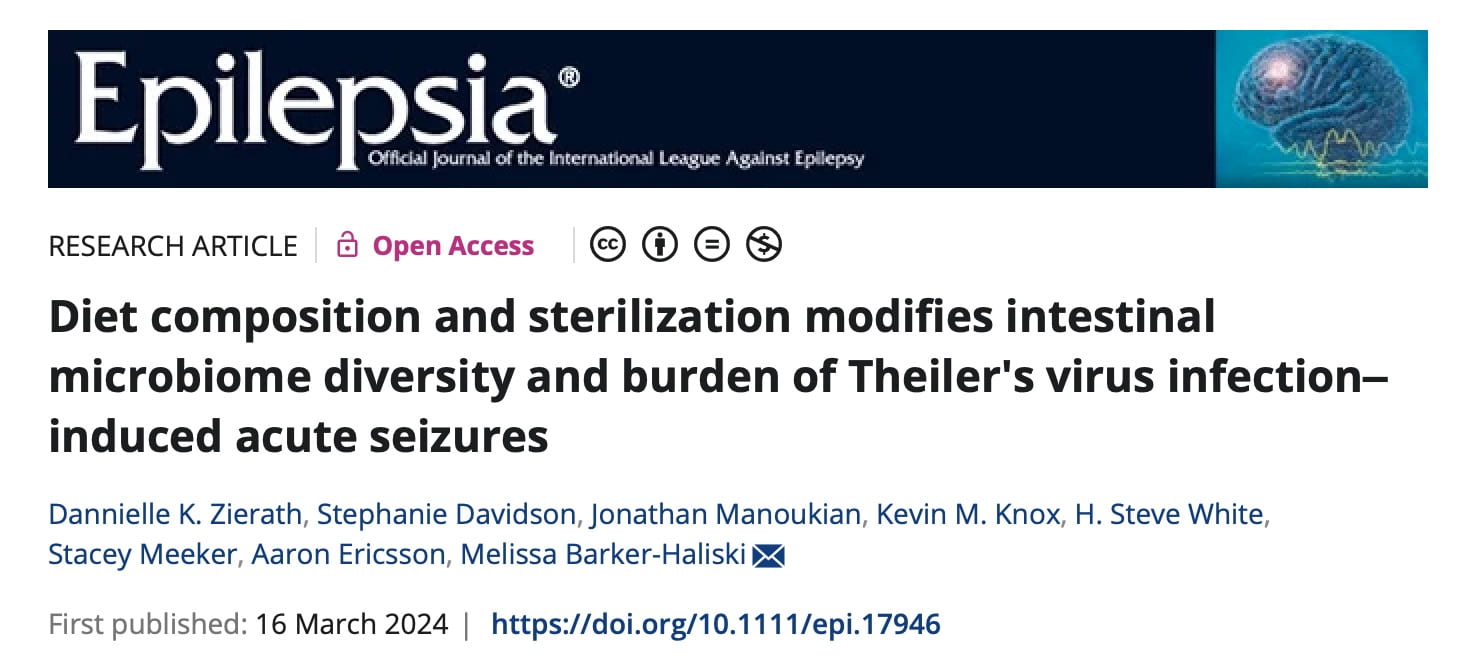
Theiler’s murine encephalomyelitis virus (TMEV) is a single-stranded RNA murine cardiovirus from the family Picornaviridae. It is useful to model virally-induced acute seizures and encephalitis-induced epileptogenesis. Because epilepsy is an underrecognized long-term complication of central nervous system (CNS) infection, the TMEV model is invaluable to understand the complex interactions between viruses, the immune system, and acquired epilepsy.
Our new study, Zierath et al, Epilepsia 2024, investigated the altered behavioral seizure presentation and long-term behavioral comorbidity severity resulting from dietary manipulation in the TMEV model. Despite its limited use in academic laboratories, our study reveals that unrecognized extrinsic factors, like diet, can negatively affect model reproducibility and phenotype across laboratories. Unexpectedly, we found marked variability due to the simple change in dietary formulation and sterilization differences while attempting to replicate our own earlier findings with pharmacological interventions. We compared the irradiated UW diet (used in our University of Washington SPF facilities) with two sterilization formats of the previously employed University of Utah diet, which was the diet in use in our numerous earlier publications (Barker-Haliski et al, JPET 2015; Barker-Haliski et al, Epilepsia 2016b; Barker-Haliski et al, Neuropharmacology 2023). These subtle environmental differences significantly influenced the severity and onset of acute seizures and long-term behavioral comorbidities in this mouse model.
A causal relationship between the gastrointestinal (GI) tract dysbiosis and epilepsy has not yet been conclusively established. We now show that intestinal microbiome modulation through diet formulation and sterilization may influence acute disease after TMEV infection in C57BL/6J male mice and dramatically alter disease trajectory, suggesting that epileptogenesis after TMEV infection in C57BL/6J mice may be altered by dietary therapy or selected bacterial transfer. Our work provides a critical demonstration that disruptions in GI tract gram-positive bacteria occur with TMEV infection provides a novel therapeutic node for epilepsy.